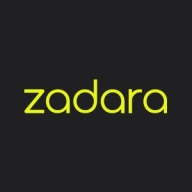


Zadara and MinIO compete in the cloud storage market. Zadara holds the upper hand due to its comprehensive managed services and robust integration with major cloud vendors, whereas MinIO is recognized for its simplicity and S3 compatibility, though it has documentation and multi-tenancy limitations.
Features: Zadara integrates seamlessly with Amazon EC2 and offers high performance with low latency connections. It provides a multi-tenant environment with dedicated resources and supports hybrid storage options. MinIO is prized for its Amazon S3 compatibility, ease of use, and supports various environments including Kubernetes, making deployment straightforward.
Room for Improvement: Zadara needs to enhance features like auto-tiering and VM support, along with better analytics and reporting tools. MinIO should improve its documentation, especially outside of container use, enhance multi-tenancy support, and offer stronger monitoring and performance tuning guidance.
Ease of Deployment and Customer Service: Zadara's deployment is supported by 24/7 proactive technical support, reducing user burden. MinIO is praised for responsive support and easy deployment in private and hybrid clouds, though Zadara's comprehensive service offering is more appealing for businesses seeking turnkey solutions.
Pricing and ROI: Zadara provides a pay-as-you-grow model, offering predictable costs without hidden fees, proving lucrative for capacity scaling. MinIO is free for personal use with an enterprise license available, offering low initial costs, though infrastructure and additional support may increase expenses. Zadara's model is seen as providing a more tangible ROI through efficient resource allocation.



FlashBlade is the industry’s most advanced scale-out storage for unstructured data, powered by a modern, massively parallel architecture to consolidate complex data silos (like backup appliances and data lakes) and accelerate tomorrow’s discoveries and insights.
MinIO is an open-source object storage system. It is designed to efficiently store and retrieve unstructured data, such as photos, videos, and backups. MinIO can be used as a standalone object storage server or as part of a larger system, such as a data lake or a private cloud, and can be deployed on-premise, in the cloud, or in a hybrid environment, making it a flexible storage solution for a variety of use cases.
MinIO’s features include erasure coding, bitrot protection, and checksum validation, which help ensure data integrity and reliability. The solution’s multi-tenancy support makes it ideal for multi-user environments. MinIO’s edge computing tools enable data storage and processing closer to users' locations, reducing latency and improving performance. MinIO can easily scale to accommodate storage and power demands, making it ideal for use in large-scale, data-intensive environments.
MinIO Benefits and Features:
MinIO offers several key benefits and features for organizations looking for a scalable and high-performing object storage solution:
Reviews from Real Users
MinIO stands out among its competitors for a number of reasons. Several major ones are its flexibility, integration options, and performance.
Süleyman Fazıl Y., a senior software engineer at a tech services company, writes, “The most valuable features are that MinIO is open, it works on-premise, and is compatible with the Amazon industry which is great for finding compatible libraries in many languages which is very good for developers.”
Rebecca S., CTO at NIASE, says, “MinIO is much improved over the prior solution, updates are simple to apply, and we anticipate that future capacity requirements will be easier to meet. Our customers are using this solution to retrieve tens of thousands of objects (documents and files) per hour, and MinIO seems to be able to keep up with it.”
Zadara is a powerful enterprise-level storage solution whose design enables it to handle every aspect of a user’s data storage needs. It can be deployed in any location, using any protocol, and storing any data type that an organization requires. With Zadara, organizations can do everything that they were able to do with more traditional systems in a cheaper and more efficient way.
Zadara Benefits
Some of the ways that organizations can benefit by choosing to deploy Zadara include:
Zadara Features
File analytics. Organizations can leverage a powerful analytics package that can provide them with critical insights. These tools can help users sort through their data and make more informed data management decisions.
Reviews from Real Users
Zadara is a highly effective solution that stands out when compared to many of its competitors. Two major advantages it offers are its extensive suite of cloud solution integrations and its object storage capability.
Steve H., the chief technology officer at Pratum, writes, “One of the most valuable features is its integration with other cloud solutions. We have a presence within Amazon EC2 and we leverage computer instances there. Being able to integrate with computing, both locally within Zadara, as well as with other cloud vendors such as Amazon, is very helpful, while also being able to maintain extremely low latency between those connections.”
Mauro R., the CEO of Momit SRL, says, “The object storage feature is wonderful. With traditional storage, you have a cost per gigabyte that is extremely high or related to the number of disks. With Zadara Storage Cloud, you have a cost per gigabyte that you can cut and tailor to your needs independent of the number or size of the disks.”
We monitor all File and Object Storage reviews to prevent fraudulent reviews and keep review quality high. We do not post reviews by company employees or direct competitors. We validate each review for authenticity via cross-reference with LinkedIn, and personal follow-up with the reviewer when necessary.